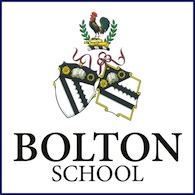September, much more than January, is the time for New Year resolutions in schools. It is also a time when Janus stands and looks forward into the future and back to the past.
In the past 20 years, with the huge benefit of hindsight, what have been the huge themes that have shaped the narrative of life in schools? I would suggest my top three are accountability, participation and IT. From the National Curriculum, high stakes testing, various performance measures to OFSTED there can be no doubt that schools are more accountable to more people in more ways than ever before. They also have far more people in them, in general as the population rises, but also many more at sixth form level. This has been accompanied by various bouts of angst about whether the exams this increasingly diverse group of people take are fit for purpose. IT has also changed beyond recognition, from early photocopiers through to iPads via interactive whiteboards in the classroom and, behind the scenes, the data processing power of IT enabling much of the surge in accountability.
So what of the next 20 years, this time with the aid of a crystal ball? I would suggest the areas might well be the same but that, in each case, the moment may well be on hand for a paradigm shift rather than evolutionary change. Over the next few months I will blog about the three trends I hope and think will shape those next decades.
1)ááááá Professionalisation, Trust and Quality Assurance
Obviously our schools all need to be accountable. It was entirely reasonable to have a national set of guidelines about what is taught and it is reasonable also to expect schools to work well for the pupils in them. However, we have got stuck in a rut of targets (some SMART and some simply silly, with unintended consequences), accountability measures and a pervading culture of low trust inspection and control mechanisms. The place these things exist least, is also where the education system arguably works best, our world leading independent sector.
Schools need continuous quality assurance: every day needs to be right not just special days. The problem is neither OFSTED, nor any other inspection regime, can do this. The quality audit model of inspection separates absolutely in many minds the need for everyday excellence and the inspection. Evidence shows that schools concentrate better on excellence with follow up inspections also shows that they focus just as badly as anyone else in year 3. OFSTED short notice inspections are a response to this weakness in the system. However, they will never produce proper quality assurance whilst the OFSTED regime is associated with extrinsic inspection and not an intrinsic passion for the best. We all know children actually start to achieve when they stop needing extrinsic motivation and wish to do it for themselves. Teachers are surely the same. This may well be achieved by a robust Royal College of Teaching, as proposed earlier this year in a paper from the Prices Teaching Institute. Remove the toxic brand of OFSTED , replace their basic health, safety and safeguarding legislative duties by the HSE or similar body and then spend the money OFSTED costs on supporting the start up costs of a Royal College. Motivating teachers to wish to be always excellent with passion from within will, over time, be far more successful than external monitoring, however frequent.
Next time à. Who are schools for?

Leave a Reply